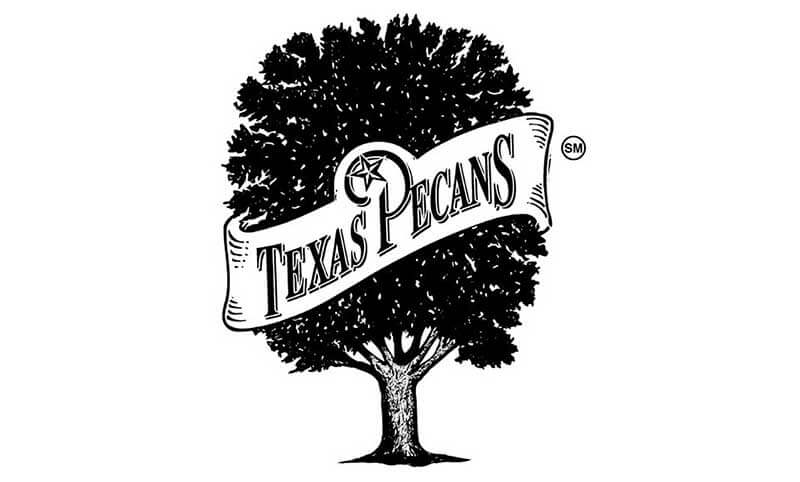The Texas Pecan Board, with pecan growers from across the state, gathered Oct. 1 at the state capitol, marking the 100th anniversary of the pecan tree being named the state tree and kick off Texas Pecan Month with a gubernatorial proclamation. According to new Texas consumer survey data released at the event, pecans are highly identified with Texas.
Pecans and pecan dishes ranked highly throughout the survey as foods that “identify with Texas.” Respondents identified pecan pie the sixth most “Texas” food (61 percent) and the most “Texas” dessert, following Tex Mex (83 percent), barbecue (82 percent), chicken fried steak (67 percent), chili (63 percent) and fajitas (62 percent). Also, more than half (54 percent) of respondents correctly identified “pecan” as the Texas state tree. Nearly one-quarter of respondents (24 percent) said they would give up social media rather than having to give up pecans for life.
“Texas has had a long love affair with pecans, and we aren’t surprised, but of course thrilled, to see how much Texans love pecans,” says Bob Whitney, executive director of the Texas Pecan Board. “As we celebrate the 100th anniversary of our state tree, we hope every Texan will embrace Texas Pecan Month and reconnect with what is the only truly native nut to America and indeed Texas.”
Also, the survey answered the age-old question of how to pronounce “pecan” with 41 percent of respondents choosing “pih-kahn” followed by “puh-kahn” (34 percent). “Pih-kahn” was chosen by every age group as the proper pronunciation of “pecan,” except those respondents ages 18-22, who chose “pee-can” as the correct pronunciation. This could indicate a potential shift in the state’s preferred pronunciation of the popular nut in the future.
“While the survey shows that most Texans prefer to say ‘pih-kahn,’ we don’t really care how you say pecan as long as you’re eating them,” says Whitney. “But seriously, we love to see the excitement around pecans. We have growers across the state working hard to produce this iconic nut, and seeing enthusiasm from consumers is like music to their ears.”
According to the survey, most respondents said pecans reminded them of the holidays (66 percent), comfort food (37 percent) and childhood (25 percent), and their favorite pecan dishes were pecan pie (65 percent), butter pecan ice cream (45 percent), pecans as a snack (42 percent), pecan pralines (39 percent) and candied pecans (32 percent). Of respondents who had pecan-related recipes (40 percent), more than three-quarters (76 percent) got their recipes from either their parents or grandparents.
“Pecans really are a part of Texas culture handed down from generation to generation whether you’re eating them or growing them or eating and growing them,” says Whitney.
Texas pecans are grown and harvested by family farmers in all regions of Texas, with many of these farms passed down for multiple generations. Pecans play an important role in the state’s rich and illustrious history. Archaeologists have found evidence of pecan seed and leaf fossils formed along the Rio Grande as far back as 6100 B.C. Wild Texas pecans were a staple in the diets of Native Americans, who originally referred to them as pecanes and relied on their nourishing kernels as a major food source in the fall months. Texas is consistently one of the top two pecan producing states in the country.
Pecans are typically harvested in the fall, and many Texas pecan growers are beginning the harvesting process now. Texas pecans are available at many Texas grocers but can also be purchased directly from growers. Texans can demonstrate their passion for Texas pecans throughout Texas Pecan Month using #TexasPecanMonth on social media.
Texas pecans are packed with multiple health-promoting nutrients and bioactive compounds. They contain the same unsaturated fats that are found in other nuts, and nearly two decades of research suggests that nuts, including pecans, may help promote heart health. Each 1-oz. serving of raw Texas pecans contains 12g of monounsaturated fat, with zero cholesterol or sodium. Compared to other nuts, pecans are among the lowest in carbs and highest in fiber. A handful of Texas pecans—about 19 halves—is a good source of fiber, thiamin and zinc, and an excellent source of copper and manganese.
The pecan has been recognized by the state of Texas in several ways over time. In 1919, the pecan tree was named the state tree of Texas, making it among the oldest state tree designations in the country. In 2001, the pecan was declared the official state health nut. In 2013, the pecan pie was named the Texas state pie.
The Texas Pecan survey was commissioned by the Texas Pecan Board and conducted by OnePoll with 800 respondents ranging in age from 18-22 to 55+, from across the state of Texas.

